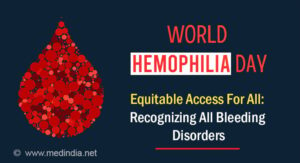Visitor weblog: Instructor’s experiences assist college students navigate psychological well being
[ad_1]
As a 46-year-old veteran highschool trainer, I usually fear my college students will quickly write me off with an “Okay, Boomer” response. Though a member of Technology X, technically I’m nearer in age to my Child Boomer predecessors than the Zoomers in my classroom, however they only see me because the older man behind the desk.
My college students are navigating a world that appears rather a lot completely different from the one I grew up in. However whilst know-how, traits, and even the challenges we face evolve, the elemental want for help and understanding stays fixed. Regardless of what a few of my college students might imagine at occasions, I’ve realized a couple of issues through the years that is perhaps helpful to them. After all, remembering what it’s prefer to be an adolescent isn’t the identical as being an adolescent, and I guarantee that the recommendation I provide my college students comes from a spot of humility. You received’t hear Mr. Cullinane stand in entrance of the classroom proselytizing in regards to the good ol’ days or about how he walked to high school uphill each methods and nonetheless all the time arrived on time. I’m more likely to carry up my failings.
The pressures and challenges my college students and youngsters face are very actual and vital. I’m grateful that this fall I can make the most of the numerous sources in Psychological Well being America’s new toolkit – Selfies, Social, & Screens: Navigating Digital Areas for Youth – created in partnership with Walgreens. Younger individuals want well-trained mentors, the precise sources to determine warning indicators, and generally a serving to hand. This toolkit presents suggestions and steering for me as a trainer and youth and their caregivers.
Generally, the recommendation younger individuals obtain about self-care on-line may be questionable or at occasions even self-defeating. Take “bed-rotting” for instance – the place younger persons are informed that one of the best ways to beat their psychological well being challenges is to sit down in mattress for self-care, the place they might find yourself scrolling social media and consuming destructive information and details about how grim humanity is as we speak.
Full disclosure: Once I was a teen, I suffered from despair, anxiousness, and a basic feeling of discomfort. In a time when issues appeared a lot less complicated, my technology shared the identical core considerations as these of my college students as we speak: feeling disconnected, hopeless, and greater than somewhat misplaced. I hardly ever had day at college and sometimes departed with emotions of hopelessness, like I didn’t belong, and that nobody favored me. Because of this, I ceaselessly faked being sick, rotting in my mattress (earlier than “bed-rotting” was a factor), watching dangerous sitcoms, and attempting desperately to quiet my thoughts.
And, you recognize what? It labored.
Effectively, it labored till it didn’t. As soon as 4 p.m. rolled round and my day of rot changed into the promise of a brand new day, the place I not solely would face the identical challenges but additionally piled up homework from lacking faculty, I panicked. Nervousness, frustration, and self-loathing multiplied.
This sample continued for me via faculty. Nobody gave me recommendation on the best way to overcome it as a result of everybody assumed I used to be a lazy slug. Usually, individuals weren’t as prepared to speak brazenly about psychological well being challenges again then.
Throughout my senior yr of faculty, I started tutoring a younger man in studying. We met every week to learn The Outsiders collectively, and with my assist, he grew as a reader. However the true change occurred in me. A brand-new feeling washed over me: pleasure. By serving to another person, I helped myself. This expertise can also be how I realized to really feel empowered – that we are able to take management of our lives and develop into sturdy and assured. Empowered persons are higher outfitted to deal with the stressors of on a regular basis life. They will make a change in themselves and others.
That’s why I respect Walgreens-Psychological Well being America partnership in creating much-needed sources for youth and the adults of their lives. As well as, I encourage my college students to enter Walgreens’ Expressions Problem yearly, which permits college students to create and share probably useful content material with one another.
I significantly just like the “Social Media Do’s” record and have shared it with my college students. It is a core part of media literacy, and it must be integrated into almost each class. The excellent record retains issues easy and simple for college students, whereas additionally addressing the nuance of being a teen in our trendy world.
The visible print outs and reality sheets round my classroom will function a reminder that we have to deal with psychological well being day-after-day, not simply within the occasions when it comes up in a dialogue. By maintaining this subject in visible proximity, we’re all the time reminded to care for ourselves and one another.
I’m additionally going to share this info with dad and mom. I wish to be an advocate for my college students, even of their challenges outdoors of my classroom, and an enormous a part of that’s being a useful resource for the dad and mom.
I do know, from working each day with Gen Z, that they’ll do nice issues. However in all honesty, it’s not straightforward for me or for them. My hope is that they’ll see the long run is vibrant, really feel the fun of doing good, and understand that all of us play a component in making an actual distinction.
Michael Cullinane is a journalism trainer at Nicholas Senn Excessive Faculty in Chicago, Illinois.
[ad_2]
Source_link






